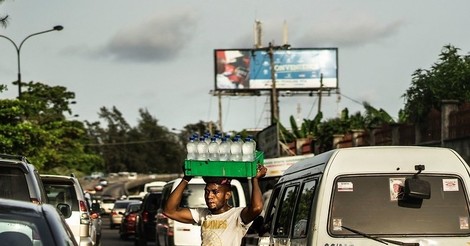Your podcast discovery platform
Curious minds select the most fascinating podcasts from around the world. Discover hand-piqd audio recommendations on your favorite topics.

piqer for: Global finds
Ciku Kimeria is a Kenyan author "Of goats and poisoned oranges" - (https://www.amazon.com/goats-poisoned-oranges-Ciku-Kimeria-ebook/dp/B00HBBWPI6), development consultant, adventurer and travel blogger (www.thekenyanexplorer.com). She writes both fiction and non-fiction focusing on African stories that need telling. She has worked on diverse pieces for various international and local publications including Quartz, Ozy, The East African etc. She has travelled to 45 countries – 16 of them in Africa. 153 countries to go and 63 territories!
"Of goats and poisoned oranges" has been extremely well received in Kenya and beyond. It tells the story of a Kenyan middle aged power couple and their complicated marriage. The novel explores issues of greed, revenge, betrayal and murder. It runs from the 1960s to 2013. It has been described as “Wicked, funny, poignant, wacky, human, a big ball of fun and danger”, “A unique and captivating book”, “Fun and intriguing”, “Impossible to put down once you start reading.”
She recently moved to Dakar, Senegal from Kenya to work on her second novel. She also works at as the Africa Communication Manager at a leading global strategy consulting firm.
She holds a B.S. in Management Science from MIT with minors in Urban Planning and International development studies.
The Company Behind The Flint Water Crisis Is On The Shortlist To Solve Lagos' Water Shortages
They have a history of poisoning black communities in the US, and they should not be poisoning the largest African city on the continent.
This quote from an activist captures the irony of the situation well. The city of Flint, Michigan is still reeling from the effects of lead poisoning at the hands of Veolia among poorer, mostly black populations that began in 2014. Veolia is a french owned multinational and the world's largest water company and is under investigation in three different countries with the Flint crisis being the most publicly known issue. Only years after the Flint crisis, Veolia is now being considered alongside three companies in Lagos to take over two thirds of the city's water system.
Named after the lagoons that thread its shores, the city [Lagos] endures lashing annual rains and its flood-prone coastline is constantly being eroded by the Atlantic Ocean. And yet, 70% of its 21 million inhabitants lack access to drinkable, piped water.
Lagos did not always have water shortages. The issues started in the 1990s when multilateral lenders led by the World Bank began to demand that developing countries privatize their utilities including water if they were to qualify for much-needed loans.
Privatizing water, the logic went, would mean its price would be controlled by supply and demand, eliminating unnecessary waste and curbing scarcity. That rationale is still touted by proponents today — including the CEO of beverage giant Nestlé, who has openly dismissed the idea of water as a public right as “extreme.”
This brings us to a dystopian threat—one where the world's scarce water resources are fully in the control of private for-profit companies. This will be a world in which access to water will no longer be considered a basic right, but a privilege that can be reserved for those who can afford it. Even without taking into account Veolia's misdeeds in Flint, it's clear why there is opposition to them having control of Lagos' water.
